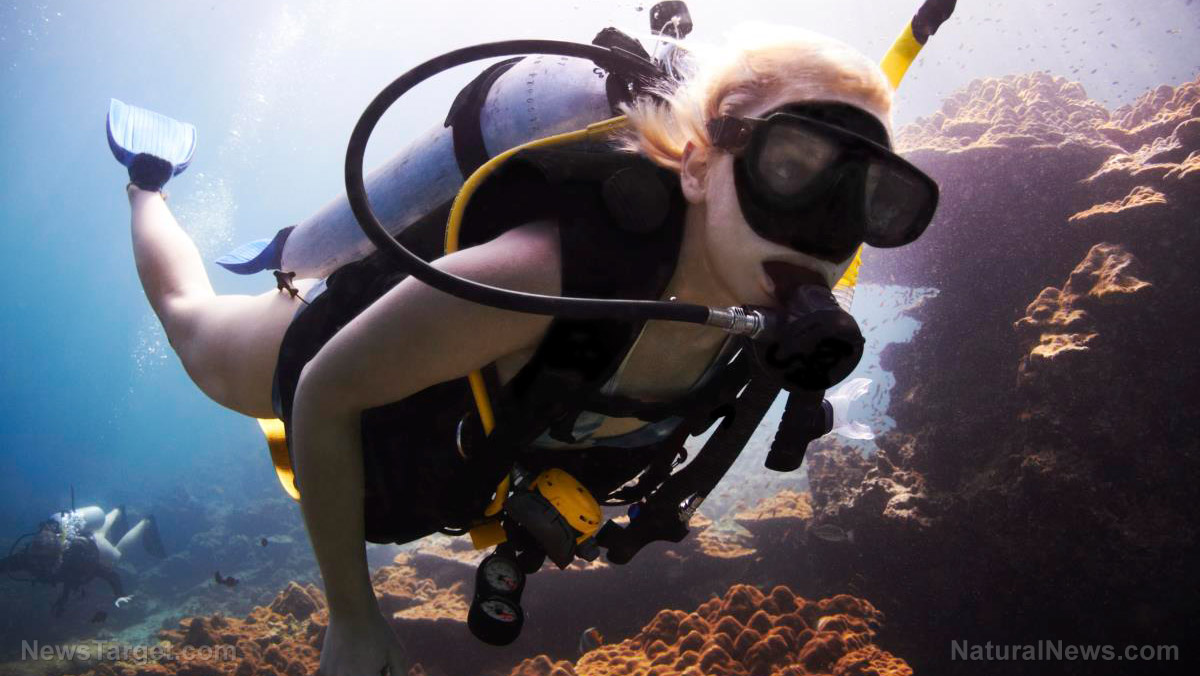Scientists are surprised at how noisy humans are underwater
09/10/2018 / By Zoey Sky

Aside from boats, do other human activities bother marine life?
According to a study, the answer is a resounding yes.
Christine Erbe, director of the Centre for Marine Science & Technology at Curtin University, talked about her work, which studied the influence of human-generated underwater noise on aquatic life.
Erbe, who studies the major contributors of underwater sound for industry and defense, explained that humans usually produce underwater noise when they take part in various water activities. She continued that she was inspired to look into how loud humans can be underwater “out of general scientific curiosity.”
Erbe shared that most people aren’t really aware of how far sound can travel underwater. In fact, even individual ships can be heard from “tens to hundreds of kilometers away.” Out on the ocean, incoming ships generate noise even before they are seen on the horizon.
Does ocean noise pollution harm marine life?
Human-made noise can sometimes be problematic for marine life because they use sound for major life functions like foraging, mating, and traveling.
According to Erbe, to find out exactly how much noise humans make and its effect on marine life, her research team devised a method to measure the sounds people generate underwater. She revealed that they did this by using hydrophones, or underwater microphones, to record the sounds people made when swimming over the recording device. (Related: One MORE way humans harm marine ecosystems: Noise.)
Erba et al. were surprised at the results of the testing, which was done in a pool. Via simultaneous underwater video and audio recordings, the findings showed that humans can indeed be very noisy even when underwater.

The recordings helped the researchers correlate certain sounds with specific activities, such as diving, kayaking, scuba diving, and various swimming styles. Erbe noted that most of the sounds humans produce is linked to bubbles that are generated at the water’s surface.
Simply letting your arms pierce the surface of any body of water while swimming freestyle launches a bubble cloud of water. This cloud then vibrates and emits an acoustic wave.
When swimming, the breaststroke was much quieter than freestyle. During the pool testing, the researchers observed each other swim each style once. Even while blindfolded, they were able to determine who swam using a certain style for the succeeding round of sound tests.
Based on the researchers’ observations, some swimmers used more force while swimming. Erbe noted that there were swimmers who used more energy when they swam vertically downwards and that they pushed “huge and noisy bubble clouds underwater.”
Meanwhile, the other swimmers expended their energy more while pushing themselves forward, which also generated “much less bubble noise vertically below them.” The researchers noted that every swimming style generates a unique sound.
For kayaking, the water that falls off of a paddle’s edge generates a high-frequency dripping sound underwater that’s easy to recognize. Even scuba divers emit an alternating pattern while inhaling and exhaling that can be identified when heard underwater.
Erbe concluded that their findings confirmed that while sound from non-motorized water sports probably won’t harm marine life, it’s still loud enough for animals to hear.
Tips to reduce ocean noise pollution
You can do your part and help reduce ocean noise pollution by following the tips below:
- Always buy local products — When you buy and consume local products, or at least those manufactured near where you live, you help reduce the need to ship imported products. Supporting local products can lower the noise pollution generated by commercial traffic.
- Choose recreation areas carefully — You don’t have to quit swimming or abstain from underwater activities. However, if you do own a jet ski or other motor craft, refrain from using them near sensitive marine areas.
- Maintain your boat — Ensuring that your boat is always in good shape can also reduce the underwater sound that it emits. Clean your boat’s propeller regularly, keep the engines well-tuned, and insulate the engines from the hull to minimize noise pollution.
You can read more articles with tips on how to minimize ocean noise pollution at GreenLivingNews.com.
Sources include:
Submit a correction >>
Tagged Under:
This article may contain statements that reflect the opinion of the author





















